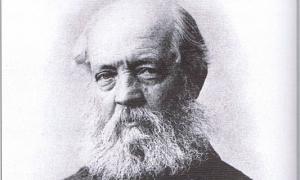NEH announces $17 million in awards and offers for 208 humanities projects

Frederick Law Olmstead

Frederick Law Olmstead
The National Endowment for the Humanities (NEH) announced today $17 million in grants for 208 humanities projects, including a documentary film on the legendary American landscape architect, Frederick Law Olmstead, whose designs have helped shape the urban landscapes of New York, Chicago, Boston, Milwaukee, and many other U.S. cities.
This funding will support a wide variety of projects ranging from an interactive collection of resources on the history of St. Augustine, Florida, founded in 1565, to helping professors develop new courses on such topics as “What is Free Will?” The grants will also support fellowships for scholarly research, the development and staging of exhibitions, digital tools, and the preservation of humanities collections and reference resources.
Among the grants announced are those that will support a traveling exhibition focusing on the events and impact of the American Revolution within colonial America’s western frontier between the Appalachian Mountains and the Mississippi River, and an authorship attribution project that will use digital tools to compare the style of Abraham Lincoln’s later speeches and papers against anonymous newspaper articles sometimes attributed to Lincoln from early in his career.
Several projects receiving grants in this funding cycle will help preserve fragile historical and cultural collections and make them more accessible to the broader public, such as an effort by the New York City Municipal Archives to preserve and index approximately 51,500 New York District Attorney felony case files dating from 1916 to 1925.
NEH grants will also allow humanities scholars to pursue research on topics such as the influence of international dance performances in New York City between 1943 and 1960 on the development of American dance and choreography, and the “free produce” Revolutionary-era boycott led by Quakers and abolitionists to protest slave-made goods as an early example of consumer activism.
“The grants announced today highlight the breadth of exceptional research supported by the National Endowment for the Humanities,” said NEH Chairman Jim Leach. “Whether it is supporting the scholars who comb through archives in search of long overlooked facts and perspectives, bringing compelling humanities exhibits and programming into communities across the country, or applying new technologies to enduring human questions, these projects will open up new ways of understanding our world and our past.”
Institutions and independent scholars in 42 states and the District of Columbia will receive NEH support. Complete state-by-state listings of grants are available here (39-page PDF).
Grants were awarded in the following categories:
- America’s Historical and Cultural Organizations: Planning and Implementation Grants support projects that create new ways to excite, inform, and stir thoughtful reflection upon culture, identity, and history in creative and new ways.
- America’s Media Makers: Development Grants enable media producers to collaborate with scholars to develop humanities content and to prepare programs for production.
- America’s Media Makers: Production Grants support the preparation of a media program for distribution.
- Digital Humanities Start-Up Grants encourage innovations in the digital humanities by supporting the planning stages of projects.
- Enduring Questions Grants allow faculty members to develop a new undergraduate course that grapples with a fundamental question addressed by the humanities.
- Fellowship Programs at Independent Research Institutions provide scholars with research time and success to resources that might not be available at their home institutions.
- Humanities Collections and Reference Resources Grants allow institutions to preserve and provide access to collections essential to scholarship, education, and public programming in the humanities.
- NEH On the Road Grants help small sites defray the cost of hosting an NEH traveling exhibition.
- Summer Stipends support full-time work by a scholar on a humanities project for a period of two months.